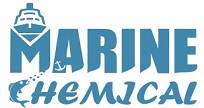
Sodium Thiosulfate Pentahydrate Solution
Sodium Thiosulfate Pentahydrate Dechlorination Solution. 200 LTR equal to 250 Kg Liquid
Sodium Thiosulfate commonly used in Dechlorination of municipal wastewater, pulp & paper, power, and textile water treatment plants and as an Oxygen scavenger in oil well drilling process in Mining industries. Also chemically suitable for Aluminium cation reaction.
Sodium Thiosulfate used as a Pond / Aquarium Dechlorinator. But Sodium Thiosulfate does not treat for Chloramine, only Chlorine. Chloramine is a chemical compound composed of chlorine and ammonia and more and more utilities are converting to its use. Check with your municipal water company to learn which chemical they are using. If Chloramine is the disinfectant, please research other knowledgeable sources to learn your best solution for water treatment.
Molecular Formula ::: Na2S2O3 - 5H2O
This product also used as a Photography as a fixing agent (hypo) to dissolve unchanged silver salts from exposed negatives.
Dechlorination in municipal, pulp & paper, power, and textile water treatment plants, Oxygen scavenger – oil well drilling process Mining industries Aluminum cation reaction
Industrial production and laboratory synthesis
On an industrial scale, sodium thiosulphate is produced chiefly from liquid waste products of sodium sulphide or sulphur dye manufacture.In the laboratory, this salt can be prepared by heating an aqueous solution of sodium sulphite with sulphur.
Principal reactions and applications
Thiosulfate anion characteristically reacts with dilute acids to produce sulfur, sulfur dioxide and water-
1.Na2S2O3 + 2HCl →2NaCl + S + SO2 + H2O
This reaction is known as a "clock reaction", because when the sulfur reaches a certain concentration the solution turns from colourless to a pale yellow. This reaction has been employed to generate colloidal sulfur. When the protonation is conducted at low temperatures, H2S2O3 (thiosulfuric acid) can be obtained. It is a somewhat strong acid with pKas of 0.6 and 1.7 for the first and second dissociation respectively.
Iodometry
In analytical chemistry, the most important use comes from the fact that the thiosulfate anion reacts stoichiometrically with iodine, reducing it to iodide as it is oxidized to tetrathionate:
Photographic processing
The terminal sulfur atom in S2O32− binds to soft metals with high affinity. Thus, silver halides, e.g. AgBr, typical components of photographic emulsions, dissolve upon treatment with aqueous thiosulfate:
2 S2O32− + AgBr →[Ag(S2O3)2]3−+ Br−
In this application to photographic processing, discovered by John Herschel and used for both film and photographic paper processing, the sodium thiosulfate is known as a photographic fixer, and is often referred to as hypo, from the original chemical name, hyposulphite of soda.
Gold extraction
Sodium thiosulfate is one component of an alternative lixiviant to cyanide for extraction of gold.[3] It forms a strong complex with gold(I) ions, [Au(S2O3)2]3−. The advantage of this approach is th
2 S2O32−(aq) + I2(aq) →S4O62−(aq) + 2 I−(aq)
Due to the quantitative nature of this reaction, as well as the fact that Na2S2O3•5H2O has an excellent shelf-life, it is used as a titrant in iodometry. Na2S2O3•5H2O is also a component of iodine clock experiments.
This particular use can be set up to measure the oxygen content of water through a long series of reactions. It is also used in estimating volumetrically the concentrations of certain compounds in solution (hydrogen peroxide, for instance) and in estimating the chlorine content in commercial bleaching powder and water.at thiosulfate is essentially non-toxic and that ore types that are refractory to gold cyanidation (e.g. carbonaceous or Carlin type ores) can be leached by thiosulfate. Some problems with this alternative process include the high consumption of thiosulfate, and the lack of a suitable recovery technique, since [Au(S2O3)2]3− does not adsorb to activated carbon, which is the standard technique used in gold cyanidation to separate the gold complex from the ore slurry.
Other names:Sodium hyposulfite, Hyposulphite of soda
Identifiers CAS number : 7772-98-7 Y, 10102-17-7 : (pentahydrate)
UNII :L0IYT1O31N Y
ChEMBL CHEMBL : 1201157 N
RTECS number :XN6476000
|
Molecular Formula |
Na2S2O3.5H2O |
|
Molar Mass |
158.11 g/mol |
|
Appearance |
Clear Liq |
|
Odor |
Odorless |
|
Density |
1.667 g/cm3 |
|
Melting Point |
48.3 °C (pentahydrate) |
|
Boiling Point |
100 °C (pentahydrate, - 5H2O decomp) |
|
Solubility in Water |
76.4 g/100 g H20(20 °C) |
IUPAC name :Sodium thiosulfate
Other names:Sodium hyposulfite ,Hyposulphite of soda
Identifiers
CAS number : 7772-98-7 Y,
10102-17-7 : (pentahydrate)
PubChem: 24477
ChemSpider :22885 Y
UNII :L0IYT1O31N Y
ChEMBL CHEMBL : 1201157 N
RTECS number :XN6476000
Other Valuable Products...
Sodium Thiosulphate Pentahydrate - Sugar Crystals
Sodium Thiosulphate Pentahydrate – P Crystals
Sodium Thiosulphate Anhydrous
Sodium Acetate Trihydrate
Sodium Acetate Anhydrous
Sodium Metabisulphite
Sodium Bisulphite
Sodium Sulphate Anhydrous
Sodium Sulphite Anhydrous
Ammonium Chloride - Extra Pure
Ammonium Sulphate - Extra Pure
Magnesium Sulphate Heptahydrate - Extra Pure
Mono Sodium Phosphate - Pure
Di Sodium Phosphate Anhydrous - Pure
Tri Sodium Phosphate Dodecahydrate
Sodium Hexa Meta Phosphate
#NeutralizerforTRO_SodiumTHIOSULFATE
SODIUM THIOSULFATE for TRO Neutralizer manufacturer and supplier in Mumbai, Visakhapatnam, Chennai, Kolkata, Paradip, Gandhidham Mundra, Fujairah, Dubai, Sharjah, Ajman, Abudhabi, UAE , Barka, Sohar, Muscat Oman
Sodium Thiosulphate Solution Dechlorination Liquid manufacturer and supplier in Mumbai, Kandla, Kolkata Haldia, Chennai, Visakhapatnam, Hazira Surat, Paradip Ennore, JNPT, Ruwi Barka, Ghala, Muscat Oman, Fujairah, Dubai, Sharjah, Ajman, Abudhabi, Nairobi, Kenya, Canada, Sudan, Yemen
Keep away from heat as the potential for release of sulfur dioxide fumes exists. Liquid sodium thiosulfate has very low toxicity but routine safety precautions should be practiced. Rubber gloves, safety goggles and protective clothing is recommended.
Sodium Thiosulfate, wt%30 +/- 2%
Sulfite, wt%1.5 max.
pH 7.0 – 9.0
Physical Properties:
Specific Gravity @ 25o C 1.252 – 1.34
Density, lbs/gal @ 25o C 10.4 – 11.2




